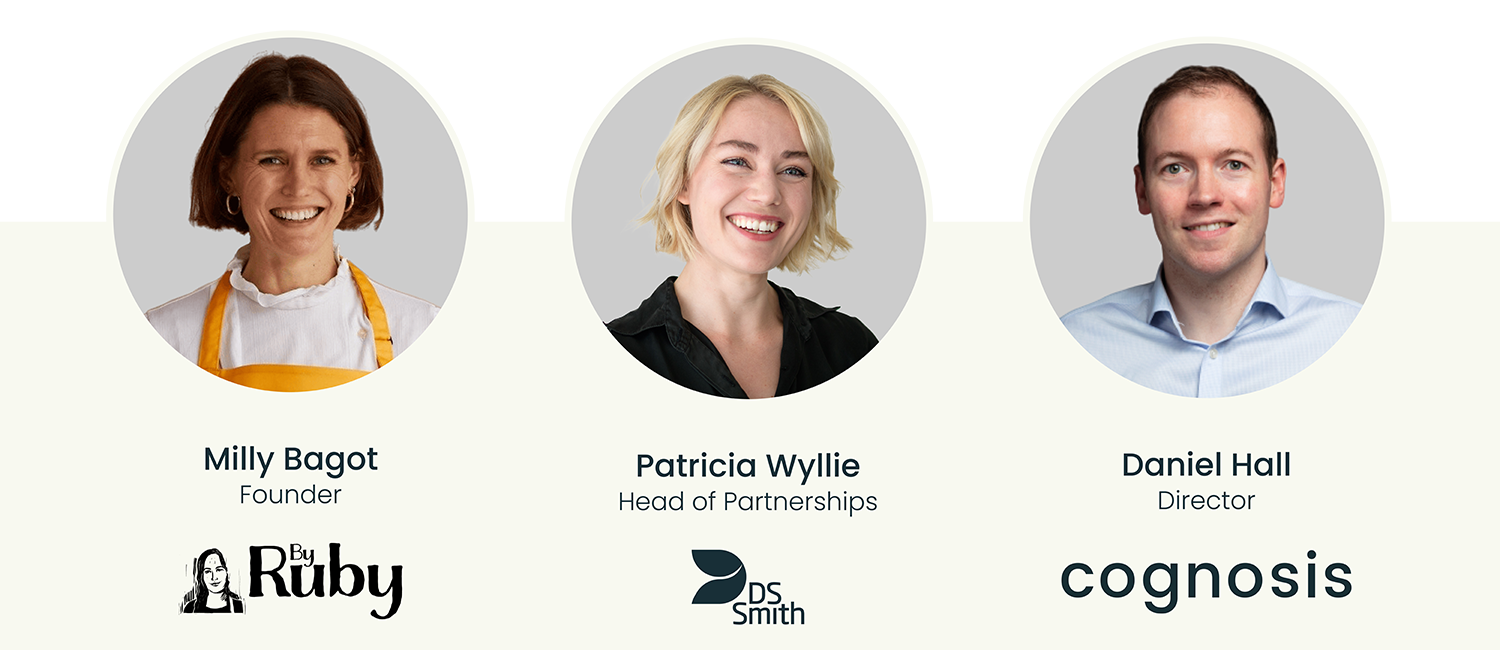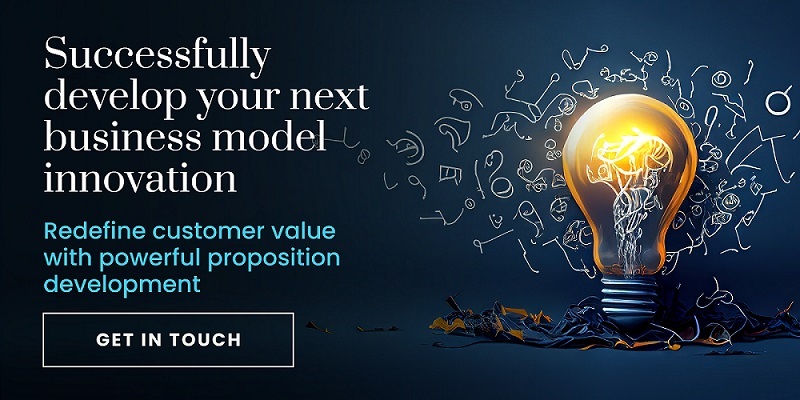Overcoming the common pitfalls to Proposition Development
70 % of new business model, product and service innovations are destined to fail. Catch up and view the recording from our Cognosis Live panel discussion with industry experts, Milly, Patricia and Daniel. They got down into the nitty gritty of the trials and rewards of innovation, new growth engines and proposition development across both multinational, scale-up and start-up companies.
Innovate to survive
Businesses are faced with a critical growth challenge. New proposition development is not merely a choice but a necessity for long-term growth and relevance and the rate at which they need to create new growth engines is accelerating. Business leaders recognise they need to keep evolving their offer, or their ability to attract and retain customers will decay. Their market share will plummet.
Yet, innovation is really hard. 70% of new business model, product and service innovations will fail, which brings huge risk and potential cost for businesses, and creates pressure on the choices that businesses need to make.
What’s the secret to success? How do businesses thread the needle of essential innovation at an acceptable tariff?
In our latest Cognosis Live online panel discussion, Duncan Campbell put these questions to three industry professionals who have considerable experience at bringing new business propositions to market.
Highlights package (you can skip to the really good bits)
Many companies struggle with innovation inertia due to the cost and risk of changing the business model. How do you keep the fires burning?
Patricia: There's always going to be discomfort and uncertainty when people are doing something new. We've found that a vision without an execution plan just scares people. [7 mins]
Millie: I'm one of these people who's always gone on their gut. And that served me pretty well in the past. But now, I need to get data to prove my gut. [13 mins]
Dan: Investing time in building buy-in was hugely valuable for reducing the risk of watering down and de-risking that just happened innately in big organisations that aren't used to moving quickly. [14 mins]
Poor customer empathy and understanding is one of the five most common pitfalls to successful proposition development. How do you bring customer views on board?
Millie: I'm not afraid of negative feedback, I think it's literally the most important thing we can get… I feel very comfortable with our products, but I really trust the customers. [21 mins]
Patricia: From the partnership side of things, it’s about bringing in businesses who really understand the customer from a completely different angle. [23 mins]
Dan: Just go and have those conversations, talk to customers. You sometimes find amazing things that the rest of the business didn't know. [26 mins]
As an innovator, you need an incredible wealth of optimism and belief to get new propositions over the line. But you also need to know when to cut your losses and move onto something else. How do you manage optimism bias?
Patricia: For a start, you need to be best friends with the CFO. We're very lucky (at DS Smith) to have a CFO who really sees the vision and drives the vision as well. [28 mins]
Dan: There were a few scars from letting things run too long. But often, that can be quite beneficial. One cycle of pain can really sharpen minds later on. We got a lot better at being more brutal and being more open about why we killed things internally. [36 mins]
Millie: I'm an optimist, at heart, and that doesn't serve you very well, if you're writing a business plan. I mean, it does if you're trying to get people on board, but you then have to hit those expectations, which is difficult. [31 mins]
What advice would you give to companies in relation to innovation and building new propositions?
Millie: I think, number one, don't be greedy. Don't expect that the world's going to do you a favour without hard work. I'd also say, talk to everybody. You never know when someone's going to be interesting or interested. [45 mins]
Patricia: Having people around you to bring positivity every day is really valuable. Support those people with patience, as it will always take longer than you think. But that doesn't mean it's not working. The breaks come in a staircase, not a smooth slide up. [47 mins]
Dan: Have the bravery to break the right rules in the right way. By the right rules, I mean those areas of big corporate life, which are going to limit your ability to be innovative. But in the right way means ensuring the big business gets what it needs, whether that's quality assurance, or financial control and rigour. [49 mins]
Meet the panelists

- Milly Bagot is co-founder of ByRuby, the start-up that is revolutionising frozen food with its handmade ready meals. In 2022, the company was bought by market leader Charlie Bigham.
- Patricia Wyllie, head of partnerships at the leading packaging firm DS Smith, works at the sharp end of corporate innovation in a FTSE 100 company. Her focus is on the development, manufacturing and recycling for sustainable fibre-based packaging.
- Daniel Hall, now a director at Cognosis, was UK strategy manager at the paint and coatings manufacturer AkzoNobel, where he delivered a portfolio of high impact projects on household names such as Dulux.
CHAMPIONING AN INNOVATIVE, AGILE approach to proposition development
Value proposition development is key to achieving long-term growth and relevance. By adopting a future focus and reaching beyond your current business model, you can embrace changing customer needs with more speed and precision than the competition.
Rooted in deep consumer, customer & competitor insight, our approach is designed to mitigate the typical pitfalls that organisations face when developing new propositions. We'll help you build commercial propositions with robust data, proxies and evidence, delivering both differentiation from the competition and maximum relevance to your customers.
Of course, innovation is possible. Those 30% of businesses that master the art of developing new business models, products, and services are reaping substantial rewards. Are you ready to ignite your next growth engine?
> RELATED ARTICLE: Business Model Innovation - The case for value proposition development


